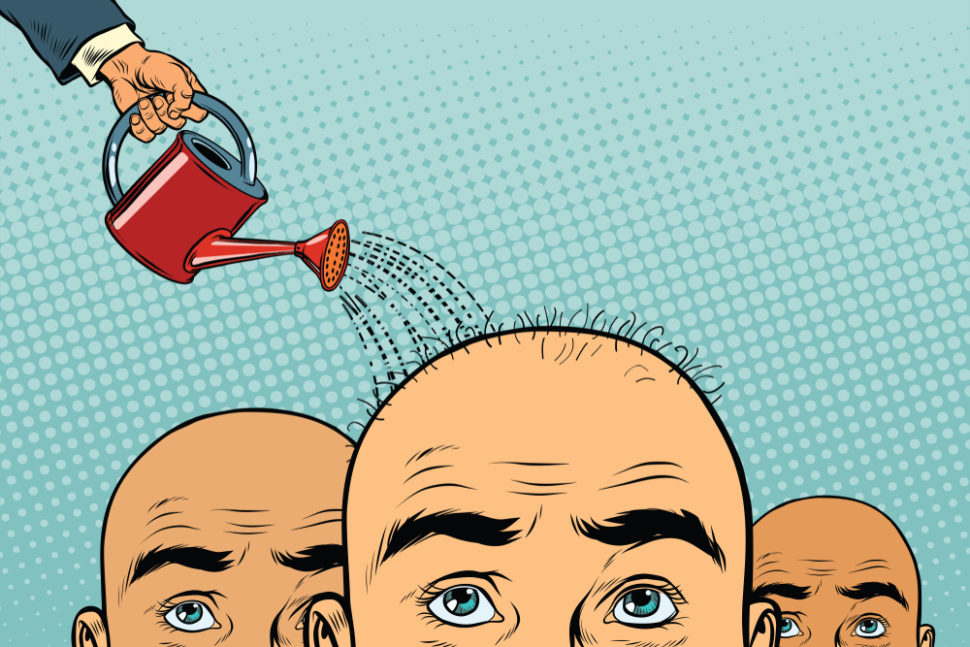New research shows that hair follicles can react to certain smells and can have olfactory reactions to certain chemicals.
The search for the remedy to baldness and hair loss is one as old as the combover. Although recent years have shown promising results in studies, there is still no definitive cure for the condition.
Treatments for curing baldness often focus on the internal chemistry of the body and the use of regulating hormones to either reduce or reverse hair loss. Although some have been relatively successful, no treatment has been shown to fully reverse or stop hair loss.
Read More: Potential Cure for Baldness Discovered by Scientists
Now, a research team from the University of Manchester may have found a potential cure by focusing on the olfactory properties of the human scalp. Using scalp samples in a controlled environment, the researchers found that applying the synthetic chemical sandalore to the scalp led to improved hair growth and even hair loss reversal.
Sandalore is a synthetic chemical that is widely used in beauty products to replicate the smell of sandalwood. The researchers found that a specific receptor found in human hair follicles (OR2AT4) reacted to the application of this chemical and encouraged hair growth and strengthening in clinical samples.
Naturally, the nose is the central olfactory organ in the human body, but it is not the only one that reacts to smells or olfactory stimulation. Researchers were aware that human hair follicles could react to olfactory stimulation before this trial, but the level of change and stimulation in the test follicles was unprecedented.
Professor Ralf Paus, a scientist at the University of Manchester who led the research, commented that;
“This is the first time ever that it has been shown that the remodeling of a normal human mini-organ [a hair] can be regulated by a simple, cosmetically widely-used odorant.”
The effect of this discovery could be significant as unlike other possible hair loss cures, sandalore is already widely commercially available and could be sold globally in a matter of months.
In fact, sandalore is already sold commercially in Italy, but it must be mentioned that this company did co-sponsor this study, so the results may have been affected by this involvement.
The chemical has already been clinically shown to promote and facilitate hair growth on scalp samples. A follow-up study of 20 women also showed either a reduction or reversal of hair loss by using the product.
Now, the researchers are aiming to facilitate a larger, more in-depth clinical trial to fully understand the capabilities of sandalore.
As it is already commercially available and approved to be used on human skin, the team believes that it will be able to provide an answer to this question as early as January 2019.
Although the results of this test are extremely promising, it is the secondary discovery of the olfactory properties of human hair follicles that has piqued the interest of a number of researchers.
Dr. Nicola Clayton of the British Association of Dermatologists, who was not involved in the study, noted that: “It is a fascinating concept that the human hair follicle, as the authors put it, can “smell” by utilizing an olfactory receptor.”
This means that even if the properties of sandalore do turn out to be overhyped, the scientific community can use the understanding gained on the olfactory properties of human hair to continue testing other chemicals in the cure for hair loss.
The research team published their findings in the journal Nature Communications.





Comments (0)
Most Recent